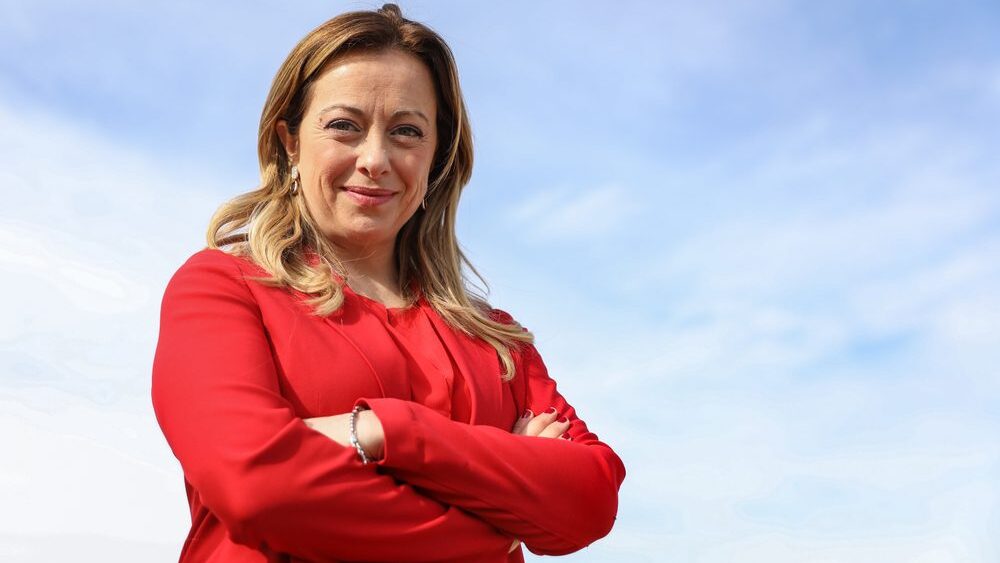
Giorgia Meloni
Photo: Alessia Pierdomenico / Shutterstock.com
The Italian Council of Ministers has paved the way for Albania to take migrants from Italy to process their asylum claims. The Council, headed by Prime Minister Giorgia Meloni, approved an agreement signed as part of a memorandum of understanding between Italy and Albania last month.
The agreement will set up two migration centres in Albania, with Italy hoping that as many as 3,000 illegal migrants will be processed in the centres every month, RAI reports. In turn, this would free up space in Italy, which has seen a surge of illegal arrivals in the last year.
Prime Minister Meloni praised the Council of Ministers’ approval of the proposal saying, “The agreement with Albania is innovative, useful and a precedent that can be set in many countries in full compliance with international law.”
Italian Foreign Minister Antonio Tajani added, “The annual costs of the agreement are less than [Є]200 million and will be well spent to tackle the fight against irregular immigration.”
The Tuesday meeting also stipulated that only migrants picked up by Italian authorities outside of EU waters would be eligible to be sent to the Albanian migrant facilities.
The measure is thought to allow Italy to relocate migrants directly to Albania without concern over European Union deportation laws, as the migrants will have never entered EU territory in the first place.
This legal clarification will probably require Italian navy vessels to patrol further out in the Mediterranean Sea so as to bring the immigrants to Albania as part of the deal.
The programme will cost Italy Є100 million in 2024 and then be reduced to Є50 million per year over the subsequent four years.
The Albania reception centres will be staffed with Italian nationals to handle the identification of migrants in one facility and processing the asylum claims of the migrants in the other.
The Italian government is looking to recruit approximately 135 people to work in the two centres, while other advertised vacancies will include medical professionals, among others, to also staff the sites.
Migrants who wish to appeal their asylum decisions will be able to do so—but not in person as they will be granted a videoconference with Italian judges while remaining in Albania—with the centres falling under the jurisdiction of the city of Rome.
The Italian left-wing opposition parties have moved previously to try and stop the deal, with Riccardo Magi—the leader of the pro-EU liberals More Europe—labelling the project “Guantanamo Made in Italy,” in reference to the American military prison in Cuba.
This week, the left-wing Democratic Party and 28 other members of parliament petitioned the Italian Constitutional Court on the agreement, claiming it violates both the Italian constitution and international conventions.
In their appeals to the court, the politicians stated that “due to its nature and terms, the agreement goes beyond a simple protocol between two governments, as Albania renounces its sovereignty over the territory intended for reception centres. Therefore, the prime minister should have obtained the authorization of the President of the Republic.”
Frontex, the European Union border agency, has also stated that it will not aid the Italian government in taking migrants to Albania.
Frontex Executive Director Hans Leijtens commented on the agreement saying:
It’s not up to me to judge how the Italian government handles immigration policy. We can provide support to both member countries and third countries and we give support to Albania, but our regulation does not allow us to carry out returns from third countries. We are not allowed to help Albania repatriate migrants. If Italy needs help, we can do it on Italian soil with Italian jurisdiction.
The deal, if successful, could be the first official outsourcing of immigration within Europe and comes as several other European countries have expressed an interest in using third-party countries outside of the European Union to process asylum claims in order to lessen pressure on their domestic reception systems.
Italy is, however, the EU member state bearing the brunt of the wave of illegal arrivals in the Union this year, with the United Nations Refugee Agency UNHCR claiming that, as of December 3rd, a total of 152,731 illegal migrants have crossed the sea route to Italy, nearly 50,000 more than last year and approaching numbers not seen since 2016.
The deal would also be a victory for Prime Minister Meloni who, despite promising to reduce illegal migration prior to her election last year, has presided over a massive increase.
In September, Meloni admitted she had hoped to do “better” on immigration saying, “The results are not what we hoped to see. It is certainly a very complex problem, but I’m sure we’ll get to the bottom of it.”
